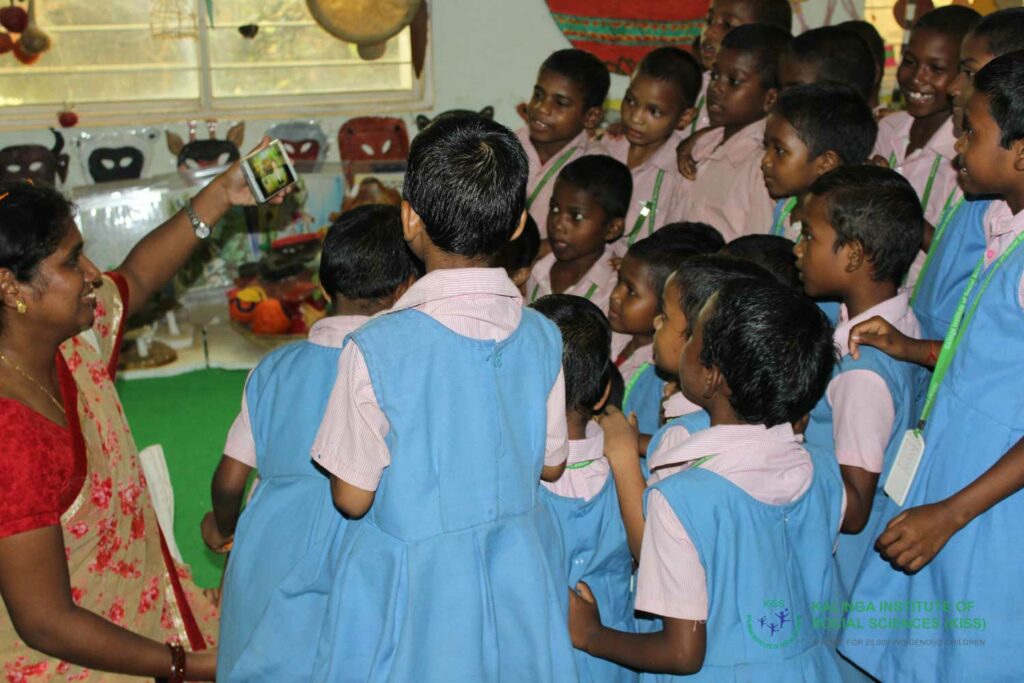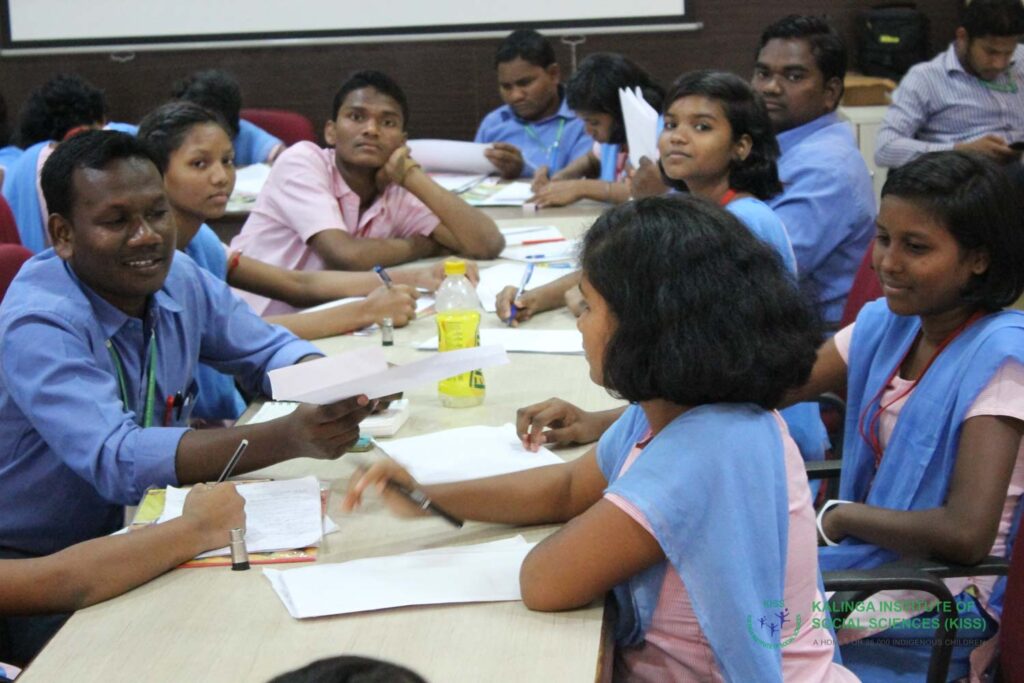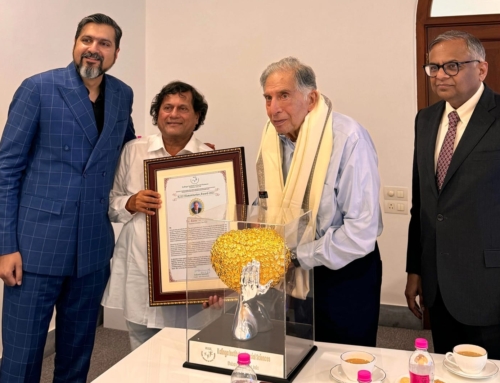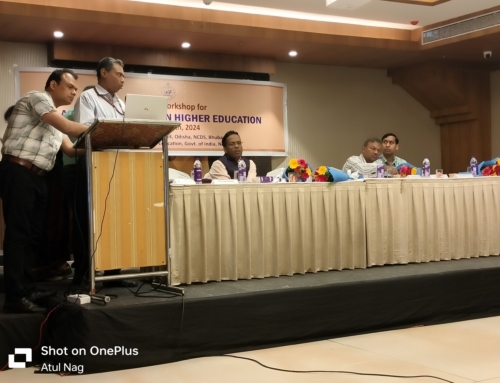First-Language- First
Odisha, the ‘Homeland of the Tribal’, houses 62 different tribal communities, categorized as Scheduled Tribe according to various parameters which include, geographical isolation, backwardness, distinctive culture, language, religion and shyness of contact. Each of these tribes are having distinct ethnic identities with more than 22 languages of their own and a variety of dialects within the communities which form a multi-ethnic, multicultural and multilingual collection.
Moving on to the education of the tribal, they are the most backward community educationally. Geographical isolation and a rigid adherence to separate set of beliefs and culture makes it difficult for them to follow the guidelines when it comes to education. There are number of provisions and laws promising to provide education to the indigenous communities, but education is not just about the dissemination of facts and information but advancement in knowledge and possibilities. It is meant to explore the truths that empower one to make choices and chase their own dreams. And moreover, education is a personalized process that cannot be standardized for everyone. That’s why, all the efforts in one way or another loosing its ground. This can also be connected to the poor exposure of the conventional and common methods of schooling. Even though the students are enrolled into a classroom, there still remains a sea of challenges to overcome and make the students take a step towards knowledge and understanding. This gap arises complexities and the teachers from a conventional background of teaching practices are unable to understand or connect to the students in the schools.
To curb this state and lift the veil of understanding that people have regarding the tribal society there is a necessity of a proper education system that not only boost the confidence among the tribals to compete with others on equal terms but also helps people to know & respect tribal lifestyle & culture.
For the aforesaid purpose, there is a requirement of an interwoven system providing highly interactive education, hospitable lodging, healthcare facilities, vocation and an overall life skill empowerment with acknowledging tribal culture & languages. This is exactly what was envisioned when Kalinga Institute of Social Sciences (KISS) was established in 1993 with only 125 tribal students. Starting as a mere sapling in a rented building to growing up into a huge forest, KISS has come all the way to become the largest free residential institute for indigenous students in the world. In an era where the meaning of ‘education’ has completely changed, a privilege always denied to these indigenous communities, KISS envisions a world where given the right opportunities in the right way even the underprivileged can become unrivaled in this globalized world.
So, when KISS started its ‘Mother Tongue Based Multilingual Education’, with the support of Bernard van Leer Foundation (BvLF), it was not only aiming for a firmer foundation that would encourage the tribal students to study further but also change the outlook of people’s understanding towards the conventional method of teaching. Amidst all the skepticism regarding the impact on these children growing outside their own communities, in a place where all these plethora of cultures and traditions might just fade away into the dark, KISS is an institution which encourages its students to be proud of their language and culture rather than stripping them off their own tribal heritage. It not only makes these young students conversant in a major language but also promotes the preservation of the tribal language and culture through promoting exchange of knowledge, collaborations and cultural awareness among the students from many different communities.
Mother Tongue Based Multilingual Education is an approach where language acquisition and language learning merge into a structured curriculum following the standard guidelines of the State Board of Education. The syllabus extracts ideas and concepts from the tribal culture and gradually shifts to the state language mode of learning. While this process provides a sense of relatability and comfort in the students, transition to the state and other languages prepares them for the mainstream mode of education. It is also an approach to bridge the gap between home and school language. Mother Tongue based learning validates the child’s home culture and traditional knowledge which helps them for further learning. To make this more effective, KISS has taken, basing its ideas on the concept of multilingual education, taken the following steps:
- Development of the Transition Curriculum
- Development of culture specific pictorial folk stories, riddles, songs etc.
- Mother tongue communication and teaching strategy of keywords translation.
- Peer group involvement.
- Development of appropriate child friendly Teaching Learning Materials and methodologies.
- Teacher capacity building.
- Celebration of the tribe specific festivals to preserve cultural identity of the children
- Established language lab to support and guide teachers with different techniques, innovation and handholding support.
- Community and Parental involvement.
- Participative and enthusiastic attitude development in teachers and students.
Following this procedure helps in bridging the gap, emotional or communicative, between a teacher and a student. The classroom acts as a comfortable and familiar environment for the students’ mind and learning capacities to be nourished. Cultural and linguistic diversity therefore act as an asset and adaptability and a wider perspective amongst students is developing while preserving their cultural identity. This project encourages multilingual education and brings about the teachers and students relationship through culturally comfortable classroom environments, and a number of workshops and seminars. The teachers then made as familiar to the tribal culture during the initial steps and following that, processes like effective classroom management, lesson plan designing, and child friendly teaching approach are discussed and practiced. These steps ensured that the teachers are well prepared to cope with the cultural and linguistic diversity and bring the students into a common ground of broader perspectives and knowledge. This therefore facilitate them into the mainstream mode of education and help them communicate on a wider platform of cultures.
Education should be inspiring and should make a person think critically and intensively. Knowledge plus character should be the goal of quality education. KISS, through this project, ensure that every child gets good education through holistic approach and a culturally comfortable environment. Hosting a myriad collection of linguistic diversity, it ensures that no child feels left out or lost in the hectic schedule of timetables, course completion and a mechanised procedure of learning. Thus, this process developed, makes the student reflect and excel in all aspects of his/her life. Adaptation of the syllabus contents from the tribal culture itself makes the student feel like they are taken care of and that the course has been designed for them exclusively. This approach helps the education in KISS take a step further towards mainstream and convention, but also keeps its culture rooted to the tribal and self identity simultaneously.
An effort to eliminate language barriers by respecting and acknowledging Indigenous culture, tradition, rituals, games, practices have enhanced the child involvement in classroom hence the learning level. This approach also provides a “Recognition space” which establishes self identity and creates a positive learning environment that respects and acknowledges where they come from, who they are and what they may already know.





